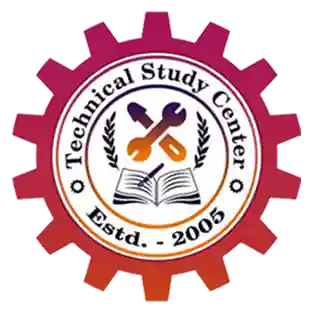From homes to hospitals, offices to factories, air conditioning and refrigeration systems keep our world comfortable and functional. Whether it’s a cooling system in a mall, a deep freezer in a food store, or an air conditioner in a home, trained AC & refrigeration technicians are always in demand.
At Technical Study Center, we provide expert training in the ITI AC & Refrigeration course, where students learn to install, repair, and maintain cooling systems with modern tools and technology.
Why Choose AC & Refrigeration?
Most people think AC technicians just refill gas and fix cooling issues, but the real skills go much deeper:
✔ Understanding different cooling systems – From small home ACs to large industrial chillers.
✔ Diagnosing problems like a doctor – Finding hidden faults that affect cooling efficiency.
✔ Repairing electrical & mechanical parts – Fixing compressors, motors, and wiring.
✔ Handling refrigerant gases safely – Learning eco-friendly and safe gas handling techniques.
✔ Reading technical blueprints – Installing AC units with perfect airflow balance.
With rapid urbanization and increasing temperatures, the need for cooling experts is rising every year.
Going Beyond Basics: Learning the Secrets of Smart AC Technicians
1. Understanding Cooling Technology: More Than Just Cold Air
Most people believe an AC only blows cold air, but a trained technician understands the science behind temperature control.
At Technical Study Center, students learn:
✔ How heat transfer works – Why ACs remove hot air, not just blow cold air.
✔ Choosing the right gas for efficiency – R-22, R-32, and eco-friendly refrigerants.
✔ Energy-saving tricks – Making ACs cool better while using less electricity.
Example: A customer complains their AC is not cooling well. Instead of just refilling gas, a smart technician checks air filters, coils, and airflow balance, ensuring long-term cooling performance.
2. Mastering Leak Detection: The Hidden Skill That Saves Time & Money
One of the biggest reasons for AC failure is gas leakage, and most technicians waste time refilling gas instead of fixing leaks.
At Technical Study Center, students practice:
✔ Using leak detectors – Finding even the smallest gas leaks.
✔ Soldering and sealing techniques – Fixing leaks permanently.
✔ Pressure testing before installation – Preventing future leaks and costly repairs.
Example: A technician who skips leak detection keeps refilling gas every few months. A trained professional finds the leak once and fixes it properly, saving time and cost for the customer.
3. The Art of Perfect Installation: It’s Not Just About Mounting the AC
A poorly installed AC wastes energy, causes noise, and breaks down quickly.
At Technical Study Center, students learn:
✔ Choosing the right location – Positioning ACs for maximum cooling.
✔ Balancing airflow for efficiency – Ensuring even cooling in all corners of a room.
✔ Avoiding common installation mistakes – Preventing gas leaks, water leaks, and electrical faults.
Example: A technician installs an AC near a direct sunlight area, making it work harder. A skilled technician chooses a shaded spot and installs insulation, reducing electricity use and improving cooling.
4. Electrical Safety & Smart Wiring: The Hidden Danger in AC Repair
Most AC problems are not gas-related but electrical, and a technician must have strong electrical skills to fix them.
At Technical Study Center, students practice:
✔ Fixing faulty wiring & relays – Ensuring safe and smooth operation.
✔ Understanding circuit boards & thermostats – Diagnosing problems inside AC controllers.
✔ Preventing short circuits & fires – Using safe wiring and overload protection.
Example: A customer’s AC keeps switching off. Instead of changing the compressor, a skilled technician checks the relay switch and capacitor, solving the issue in minutes.
5. Refrigeration Repair: The Science of Keeping Things Fresh
Refrigerators are just as important as air conditioners, used in homes, hospitals, and industries.
At Technical Study Center, students learn:
✔ Fixing deep freezers & commercial refrigerators – Used in food storage and medical labs.
✔ Defrosting problems & compressor repairs – Ensuring smooth cooling without ice buildup.
✔ Understanding refrigeration cycles – Keeping food fresh and safe.
Example: A restaurant’s freezer stops cooling. A regular technician may just refill gas, but a trained expert checks the thermostat, compressor, and evaporator coils, fixing the root cause.
Beyond Technical Skills: Building a Successful Career
At Technical Study Center, we prepare students not just for jobs but for a long-term career in the cooling industry.
✔ Time Management – Completing repairs quickly without mistakes.
✔ Customer Communication – Explaining problems clearly to clients.
✔ Smart Business Skills – Setting up your own AC & refrigeration service.
✔ Eco-Friendly Practices – Using safe gases and reducing pollution.
Many trained technicians start their own repair businesses or work in big companies handling air conditioning systems in malls, hospitals, and industries.
